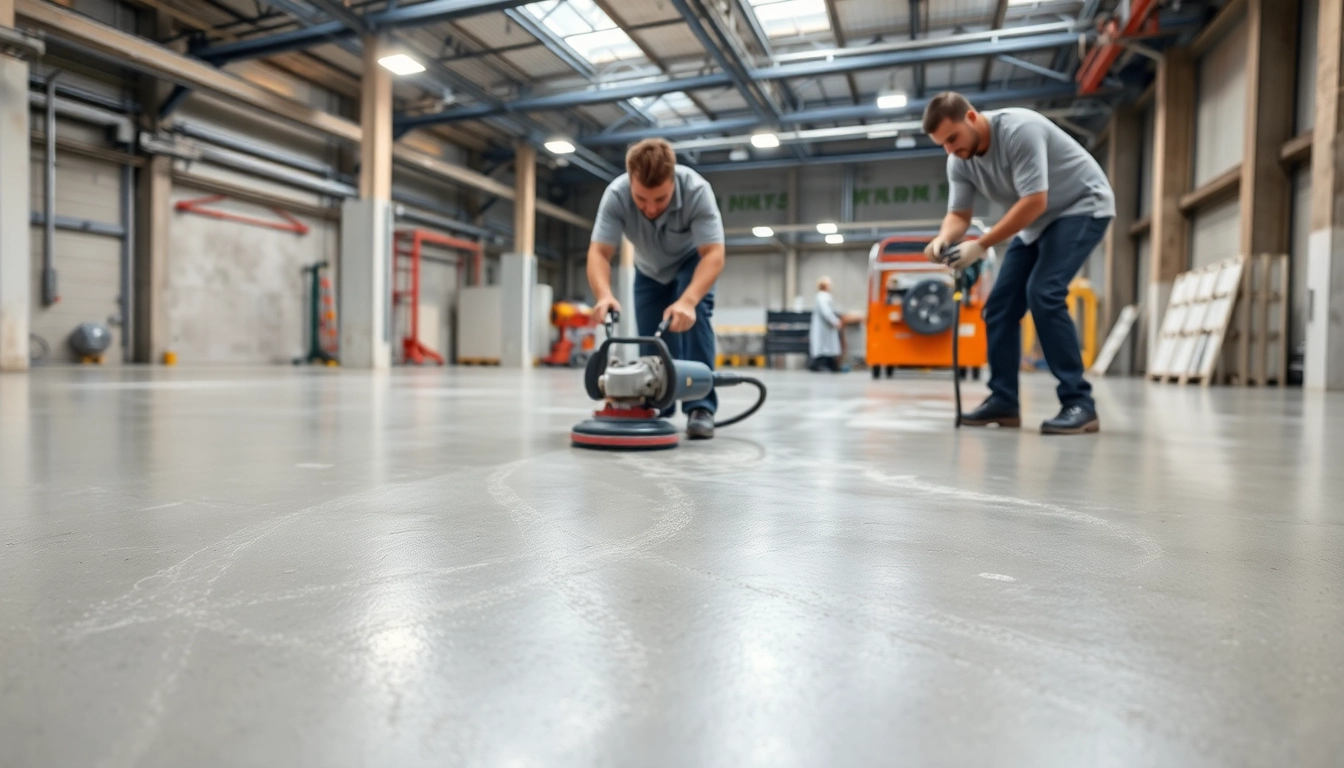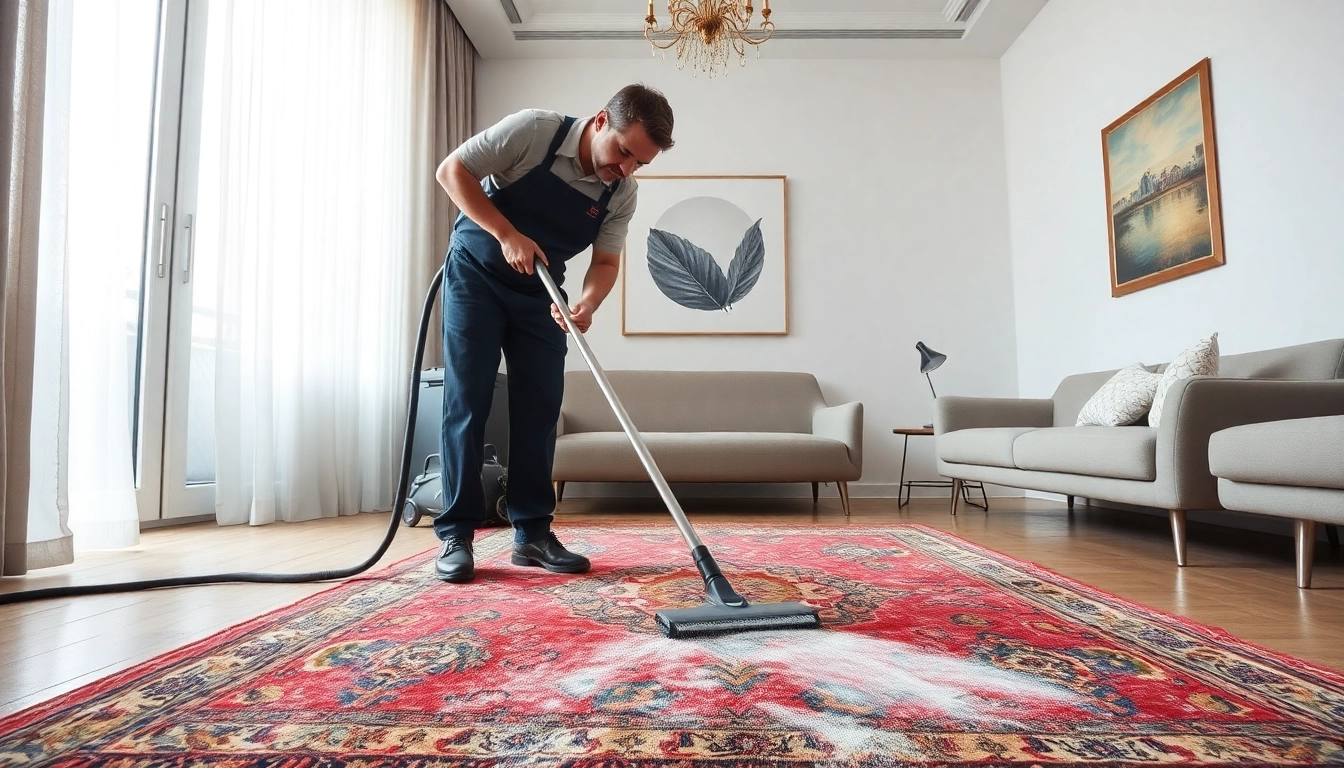Understanding Floor Preparation: Why It Matters in Birmingham
Proper floor preparation is the cornerstone of any successful flooring project. In Birmingham’s diverse construction landscape—from historic renovations to modern commercial spaces—ensuring a solid, level, and clean substrate is essential for achieving durable, visually appealing, and long-lasting floors. Whether you’re installing resin coatings, hardwood, tiles, or industrial surfaces, rigorous preparation impacts every subsequent layer, influencing adhesion, finish quality, and longevity. To guarantee optimal results, partnering with skilled professionals specializing in Floor preparation Birmingham is highly recommended, as local expertise understands the unique building conditions and material requirements prevalent in this vibrant city.
Basics of Floor Preparation and Its Impact on Finishing
At its core, floor preparation involves transforming an existing or new substrate into an ideal base for the flooring material. This process includes cleaning, leveling, repairing, and moisture testing to eliminate flaws that could compromise the final outcome. Proper preparation prevents issues like cracking, peeling, or uneven wear, which typically stem from neglecting this critical first step. For example, an uneven concrete floor without proper grinding might lead to premature epoxy failure or lippage in tile installations. Conversely, meticulously prepared surfaces ensure uniform distribution of adhesives and coatings, enhancing aesthetic appeal and durability. When done correctly, effective floor prep also reduces maintenance costs over time.
Common Floor Substrates in Birmingham Properties
Birmingham’s architectural mix features a variety of substrates, primarily concrete, screed, wood, and existing tiled surfaces. Each material poses distinct challenges and requires tailored preparation techniques:
- Concrete: The most prevalent base in both commercial and residential buildings; susceptible to surface laitance, dusting, and moisture issues.
- Screed: Often used as a substrate for final finishes; may need leveling or smoothing before top-layer application.
- Wood: Inherited from renovation projects or extensions; needs stability and moisture control before overlays.
- Tiled surfaces: Require cleaning and, sometimes, removal of old adhesive residues for bonding newer layers.
Understanding these substrates allows for selecting the appropriate preparation method, ensuring the longevity and performance of the installed flooring system.
Challenges Unique to Birmingham Building Conditions
Birmingham’s climate and construction history introduce specific challenges that impact floor preparation. The city experiences moderate to high humidity levels, which can lead to moisture intrusion in concrete slabs—an issue that, if unchecked, causes delamination or mold growth. Additionally, older buildings often have uneven subsurfaces due to settlement or construction idiosyncrasies, necessitating intensive grinding and structural repairs. The presence of residual construction debris or previous finishes further complicates prep work. Therefore, professionals need to conduct detailed assessments, including moisture testing and structural evaluations, to adapt their preparation techniques accordingly.
Techniques and Methods for Effective Floor Preparation
Diamond Grinding and Concrete Repair Steps
Diamond grinding is a highly effective method for leveling and profiling concrete surfaces, removing laitance, and creating a clean profile for subsequent layers. This process involves abrasive diamond-embedded discs that grind the surface to a specified smoothness. Following grinding, concrete repairs—such as filling cracks, patches, or spalls—are performed to ensure a uniformly sound substrate. In Birmingham, where existing concrete may have embedded unevenness or damage, diamond grinding combined with targeted repairs provides a reliable foundation.
Surface Cleaning, Levelling, and Moisture Testing
Thorough cleaning removes dust, grease, or old adhesive residues, which can impair bonding. Mechanical methods like shot blasting or chemical cleaning are utilized based on the surface condition. Surface leveling often employs self-leveling compounds or screeds to fill low spots. Moisture testing is critical—methods like calcium chloride analysis or relative humidity meters determine if the substrate is within acceptable moisture thresholds. This step is vital in Birmingham’s climate to avoid trapped moisture that could jeopardize floors such as epoxy or wood.
Choosing the Right Preparation Method for Your Floor Type
Selecting the optimal approach depends on the project scope and substrate condition. For resin or epoxy coatings, a rigorously clean and dry surface with mechanical profiling is essential. Hardwood installations require a stable, moisture-controlled base with minimal deflection. Industrial floors might necessitate large-scale grinding, leveling, and crack repairs to meet load-bearing specifications. An experienced flooring specialist assesses these parameters to recommend tailored preparation protocols, ensuring compatibility with the final flooring material.
Selecting the Best Floor Preparation Partner in Birmingham
Qualities of a Professional Floor Preparation Contractor
Reliable contractors demonstrate a combination of technical expertise, industry certifications, and a proven track record. They utilize advanced equipment and follow industry standards such as those outlined by the Concrete Society or BS EN standards. Transparency in quoting, adherence to safety protocols, and positive client reviews are indicators of professionalism. An ideal partner in Birmingham should also be familiar with local building codes and environmental regulations.
Questions to Ask Before Hiring a Service
When selecting a contractor, inquire about their experience with specific substrates, techniques, and flooring types. Ask for project references and photos of previous work. Clarify timelines, warranties, and whether they perform comprehensive moisture testing. Confirm if their team is certified in relevant fields, such as concrete grinding or floor repair. These questions ensure you choose a partner capable of delivering durable, high-quality results.
Importance of Certification and Experience
Certifications from recognized bodies like the National Association of Floor Covering Technicians (NAFCT) or industry-specific memberships demonstrate competency. Experience with Birmingham’s distinctive building stock offers insights into common problems and best practices. Firms like Impact Floors and Lazercote have established reputations for quality, leveraging local knowledge to tailor their approach for every project.
Optimizing Floor Preparation for Different Flooring Types in Birmingham
Preparation for Resin and Epoxy Coatings
Resin and epoxy floors demand meticulous surface preparation, including diamond grinding to create a roughened, contaminant-free surface. Moisture control is critical; excessive humidity or residual moisture can cause bubbling or lifting. Additionally, surface porosity influences the amount of primer or bonding agents required. Experienced prep ensures chemical adhesion and structural integrity, extending the lifespan of industrial or decorative epoxy floors.
Preparing for Hardwood and Laminate Installations
Substrates for hardwood and laminate must be dry, level, and free of debris. Moisture testing is vital to prevent warping or buckling post-installation. A stable base—such as an underlay with moisture barriers—reduces noise and improves comfort. Anti-slip and acoustic properties can also be enhanced during prep, contributing to a more refined finish.
Preparing Surfaces for Commercial and Industrial Flooring
Commercial spaces require preparation that meets specific load-bearing, slip-resistance, and chemical resistance standards. Heavy-duty grinding, crack repair, and overlaying with self-leveling compounds are routine. Ensuring uniformity, durability, and safety supports the operational demands of Birmingham’s vibrant business environments.
Evaluating Performance and Maintenance Post-Preparation
Measuring the Effectiveness of Floor Preparation
The success of floor prep is often gauged by adhesion tests, surface smoothness, and absence of residual moisture. Visual inspections and spot tests for delamination or cracks can identify potential issues early. Monitoring in the initial weeks post-installation helps verify if the preparation was sufficient.
Typical Durability Metrics and Troubleshooting
Durability is assessed through factors such as resistance to abrasion, chemical spillage, and thermal expansion. Problems like peeling or surface bubbles often indicate inadequate prep, moisture ingress, or improper material compatibility. Addressing these quickly, with expert advice, extends the lifespan of the flooring.
Post-installation Care to Maximize Floor Lifespan
Regular cleaning with suitable products, avoiding harsh chemicals, and controlling environmental conditions help preserve flooring integrity. Implementing strategies like humidity control and protective pads minimizes wear and damage. Scheduled inspections ensure early detection of issues stemming from subpar prep work.



